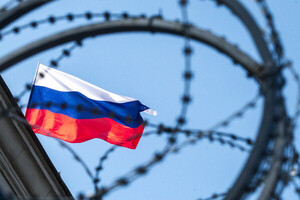This will apply to all areas of the economy.

Last week, foreign media intensified on the forecasts that On May 9, Russian President Vladimir Putin may officially declare war on Ukraine. The Russian media have already begun to write about what this means for Russia's economy. business, press, etc.
The president and the executive branch will have exclusive powers. Possibly limited movement of people, including a ban on leaving the country, change of residence; curfew announced; residents may have their defense needs confiscated at any time; the sale of weapons and much more is prohibited.
In case of martial law, mobilization may be declared (on the territory of the country or its separate parts). Mobilization is not related to martial law – it can be declared without it. However, the very notion of “mobilization” applies not only to those who will be drafted into the army. Mobilization concerns the authorities, industry and the economy as a whole.
- Enterprises and organizations. For example, firms are required to provide their assets for defense purposes. In this case, the state undertakes to pay the value of this property. Organizations are also required to carry out orders and tasks for defense purposes – in accordance with the concluded agreements.
- Citizens. The state may confiscate property and citizens in the territory where martial law is imposed. In addition, citizens can be involved in defense work. Yes, they should be involved in the elimination of the consequences of the use of weapons, the restoration of life support systems and military facilities, and will help, for example, fight fires.
- Bank accounts. The Central Bank may decide to limit, suspend non-cash payments in banks or these operations will be allowed only through certain authorized banks. The Central Bank may also impose restrictions on cash withdrawals from current and credit accounts. By the way, there is international experience when the Central Bank in the crisis actually nationalized part of the deposits of individuals and businesses. For example, in 2013 in Cyprus it was decided to withdraw 10% of deposits placed in Cypriot banks.
- Article 8 of the Law of the Russian Federation “On Martial Law” allows during the martial law to impose virtually any measures which may affect economic activity – in particular, temporary restrictions may be imposed on “economic and financial activities, turnover of property, free movement of goods, services and funds, […] procedure and conditions of bankruptcy proceedings, employment regime.”
Read also: How a full-scale war affects fisheries in Ukraine
Earlier, the chairman of the State Duma Vyacheslav Volodin said that Russia will not mobilize and a nuclear strike by the Russian Federation is possible only in response to a corresponding attack.




